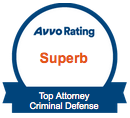Possessing illegal substances is never a good idea. While many people are aware that doing so can get them into trouble with the law, fewer know that the resulting penalties depend on the exact location where they’re caught. Our team at Case J. Darwin Law Office can help you understand what drug-free zone enhancement laws are, what they involve, and how an experienced attorney can help you build a strong case if you find yourself in this situation.
What Are Drug-Free Zone Enhancement Laws?

Drug-free zone enhancement laws are legal provisions that increase penalties for drug-related activities in certain areas, particularly around schools and similar institutions. These laws aim to protect children from the harmful effects of being around drugs and the people who use and sell them. The origins of these laws date back to the 1970s. They were first implemented at a federal level, and then states began expanding them in the 1980s.
Although there are good intentions behind drug-free enhancement laws, some claim they’ve outgrown their purpose, and their enforcement may result in over-punishment for people who commit victimless crimes. This is why having an experienced attorney can be essential if you’re in this situation.
What Is a Drug-Free Zone in Texas?
The definition of a drug-free zone in Texas is an area where federal or state laws are harsher on those who break drug-related laws. This means that if you’re in one of these areas and the police catch you in possession of illegal substances, you’re likely to face higher fines and longer prison sentences. If an officer arrests you for possessing illegal substances in a drug-free zone, they will inform the prosecutor. The prosecutor will then add the drug-free zone enhancement law to the formal charging document.
Under Texas law, you’re in a drug-free zone if you’re within 1,000 feet of the following places:
- Public or private elementary or secondary schools.
- Public or private higher educational institutions, such as universities and colleges.
- Playgrounds.
- Daycare centers and youth centers.
You’re also in a drug-free zone if you’re within 300 feet of the following places:
- Video arcades.
- School buses.
- Public swimming pools.
Which Substances Aren’t Allowed in Texas Drug-Free Zones?
The penalties for breaking drug-free enhancement laws in Texas vary based on multiple factors, including the type of illegal substance in your possession. They’re divided into four penalty groups:
Penalty Group 1
The highest penalty group includes some of the most dangerous drugs available on illicit markets, such as cocaine, various types of opioids and opium derivatives, ketamine, mescaline, and other powerful and highly addictive drugs. It also includes lysergic acid diethylamide (LSD) under a special category called Penalty Group 1A. The reason for this distinction is that LSD is sold by the dose, as opposed to most other drugs that are sold based on their weight.
The minimum penalty for possessing a drug included in Penalty Group 1 is a $10,000 fine and two years in jail. Possession in a Texas drug-free zone increases the minimum jail time to five years and doubles the fine. This applies to all other penalty groups. In addition, possessing large quantities of drugs with clear intent to sell can increase these penalties to a $250,000 fine and up to life in prison.
Penalty Group 2
This penalty group includes less dangerous illegal drugs, such as cannabinoid-based hashish and marijuana. It includes other illegal recreational drugs, such as methylenedioxymethamphetamine (also known as MDMA or ecstasy) and phenylcyclohexylpiperidine (also known as PCP or angel dust). The usual penalties for possessing a Penalty Group 2 drug range from two years in prison to a $50,000 fine and life in prison.
Penalty Group 3
This penalty group mostly includes legal prescription drugs that either stimulate or sedate a person and carry a high risk of addiction. Some examples include anabolic steroids, benzodiazepines, and opiate-based drugs not included in Penalty Group 1. The usual penalties for possessing a Penalty Group 3 drug start with a $4,000 fine and a one-year jail sentence for minor offenses but can escalate to up to 20 years in prison and a $10,000 fine for serious offenses.
Penalty Group 4
This group includes opiates, opioids, and prescription medications that aren’t included in the top three categories. It also includes various chemical compounds used to create medications. The penalties are similar to those for Penalty Group 3.
What Are the Exceptions and Statutes of Limitations to Texas Drug-Free Zone Laws?
In some situations, possessing an illegal substance in a Texas drug-free zone doesn’t lead to a higher sentence than possessing it in any other area within the state. First, the defendant must prove that they didn’t attempt to profit financially from having the substance. The other two criteria include possession on private property and the absence of minors on the premises.
Since possessing illegal substances in a Texas drug-free zone is a felony, the statute of limitations is three years. In other words, law enforcement representatives have three years from the date in which the offense occurred to formally charge you for the crime. However, the statute of limitations can increase under certain conditions. Highly dangerous substances, such as heroin and methamphetamine, usually carry a 10-year statute of limitations. Attempting to sell the drugs to a minor usually results in the removal of any statute of limitations.
Case J. Darwin Law Office Can Help You Fight Your Charges
If you’ve been charged with possessing illegal substances in a Texas drug-free zone, it’s important to remember that you’re innocent until proven otherwise. An effective way of proving that is by hiring an attorney with experience in such situations, like those at Case J. Darwin Law Office. We’ll work with you to examine all the fine details regarding your case and formulate a valid defense that may result in your charges being dropped or reduced. Call us today at 512-738-6146, and we’ll help you build your case.
It is even more important that you have an experienced criminal defense attorney if you are hit with a drug-free zone enhancement. Such an enhancement can truly have catastrophic effects. For example, if you plea to a drug-free zone enhancement, a sentence to time requires the person to serve out his sentence day for a day or 5 years day for day, whichever is less. See Tex. Gov’t Code Ann. § 508.145(e) (West 2018). This enhancement thus affects parole drastically. You always want to get this enhancement waived, even if you plea to probation (“community supervision”). The reason being, what if your probation gets revoked? You will have to do time day for day if you are a sentence to a term of years.
The good news is that a good defense attorney, at a minimum, can typically get the State to waive the enhancement.
The drug-free zone enhancement applies, typically, to possession or distribution of drugs at or within 1,000 feet of a school or playground. See Tex. Health & Safety Code Ann. § 481.134 (West 2018). The enhancement can also apply to drug possession or distribution at or within a certain amount of feet to a public swimming pool, video arcade facility, youth center, or a school bus. See Tex. Health & Safety Code Ann. § 481.134 (West 2018). The enhancement covers all of the drug penalty groups and thus includes marijuana, marijuana concentrate, methamphetamine, cocaine, heroin, dangerous drugs, mushrooms, and MDMA.
The bottom line
Possession or distribution of drugs in a drug-free zone increases the offense level by one degree. See Tex. Health & Safety Code Ann. § 481.134 (West 2018). Thus, a Class B Misdemeanor becomes a Class A Misdemeanor, a Class A Misdemeanor becomes a state-jail felony, a state-jail felony becomes a third-degree felony, etc. See Tex. Health & Safety Code Ann. § 481.134 (West 2018). If the amount of drug possessed or distributed, with the drug-free zone enhancement, is a third-degree felony or second-degree felony, the minimum amount of punishment starts out at 7 years, while if it is a first-degree felony, the minimum amount of punishment starts out at 10 years. See Tex. Health & Safety Code Ann. § 481.134 (West 2018).
If this enhancement applies to you or a loved one, it is important to contact the experienced attorneys at Case J. Darwin for more information or to schedule a consultation.




